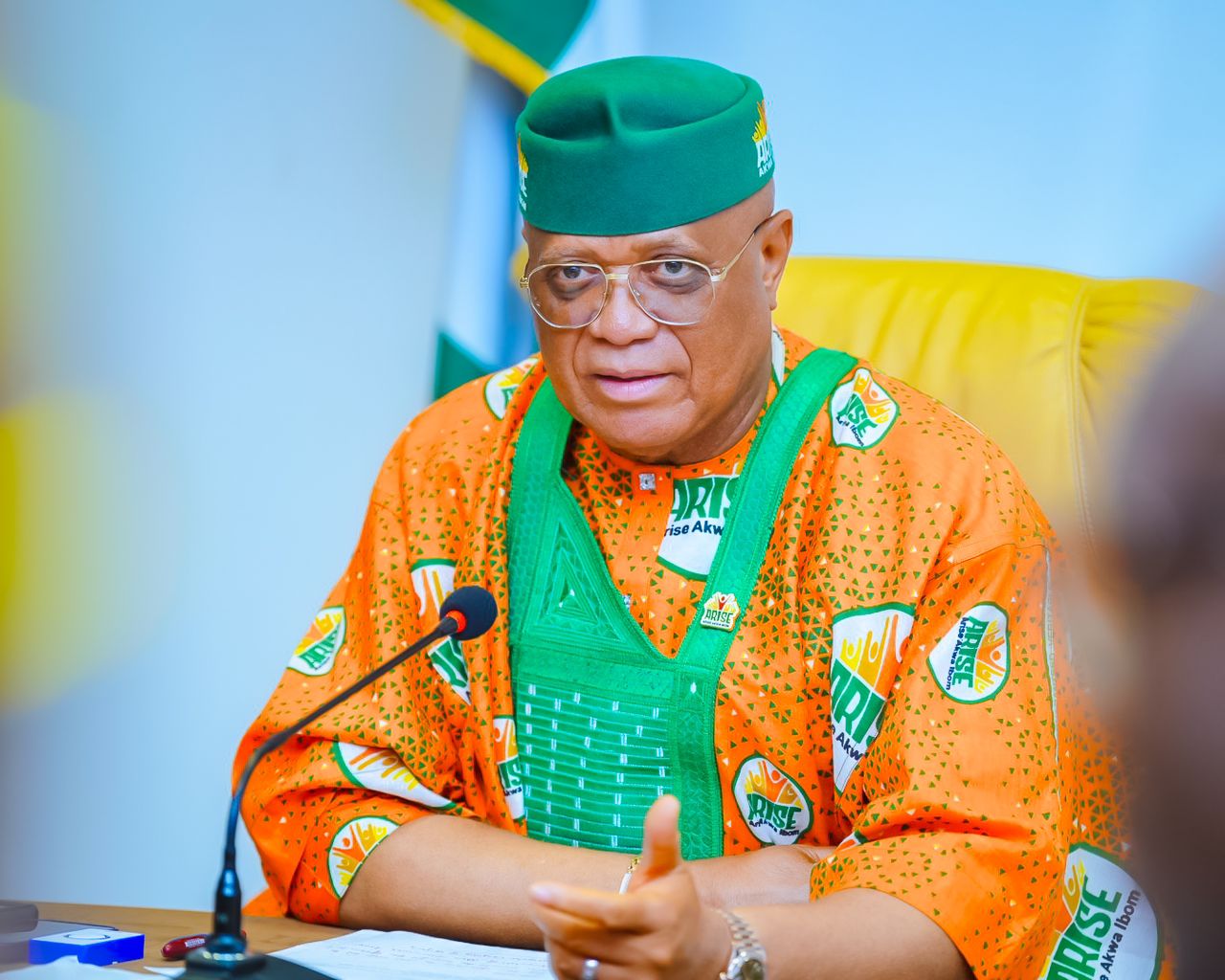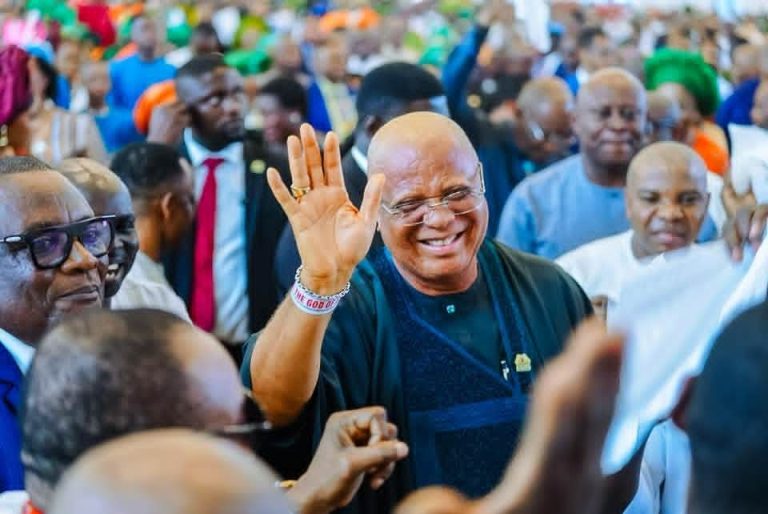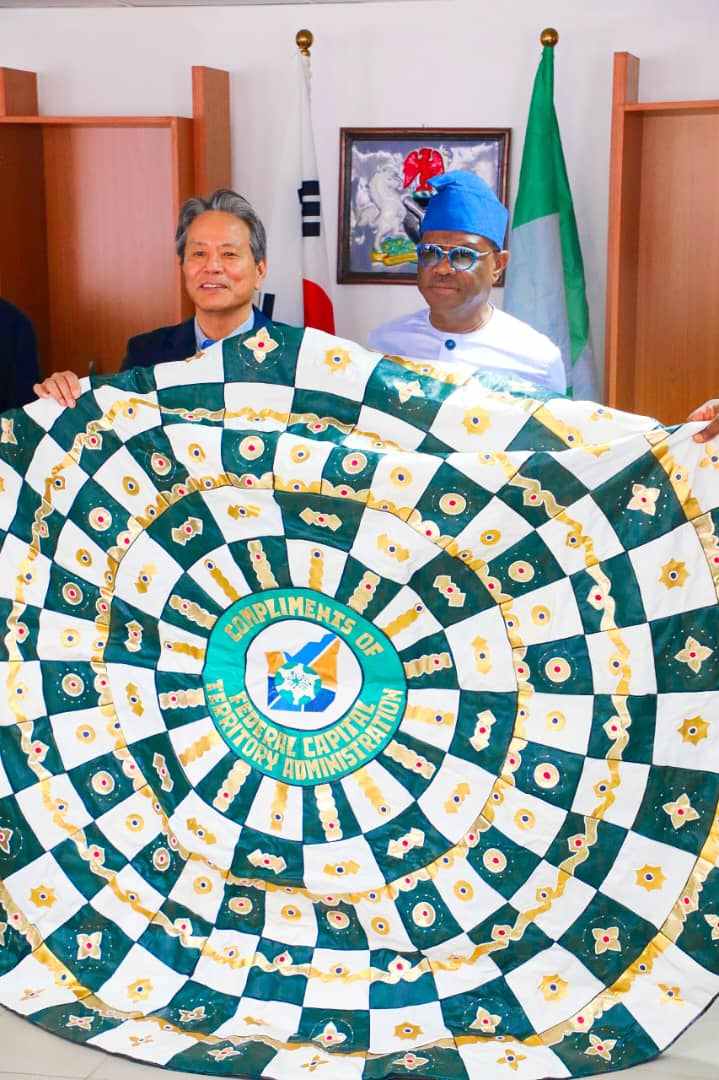
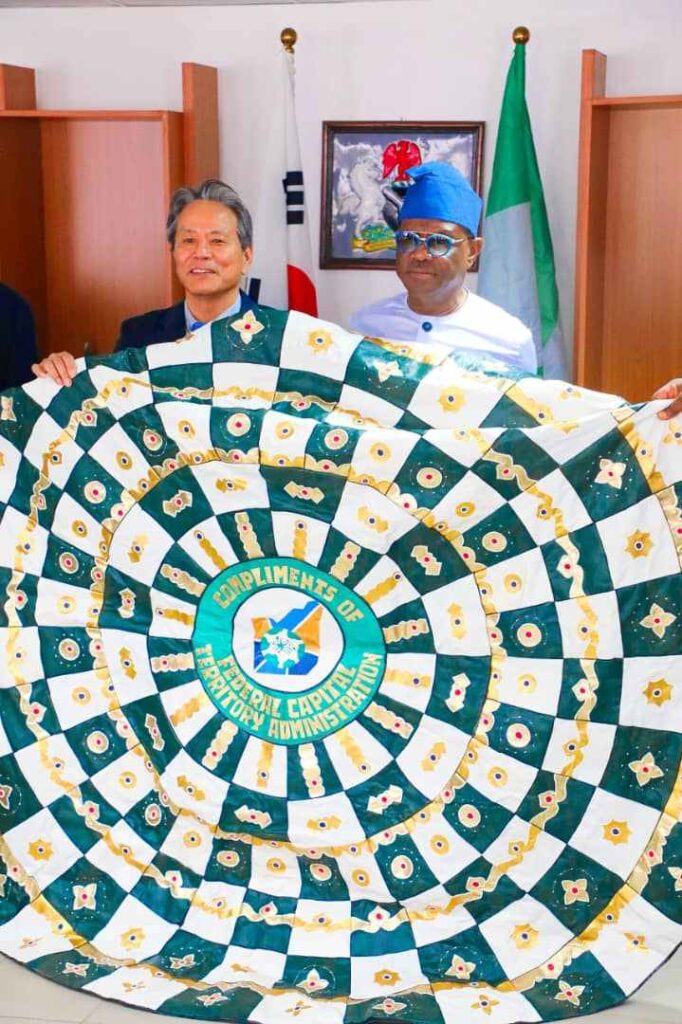
The FCT Minister, Barrister Nyesom Ezenwo Wike over two days received the Ambassadors of Turkiye and South Korea in the audience in his office.
The Turkish Ambassador to Nigeria, Hidayet Bayrakter, on Monday, sought the collaboration of the FCT Administration in the construction of the second phase of the ongoing Abuja metro system.
The Ambassador who spoke during his visit to the FCT Minister, stated that Turkiye had very capable construction companies with experience in rail construction as well as suspension bridges.
Some of the companies, he said were involved in the construction of the metro system in Dubai and Qatar, in addition to building one of the biggest suspension bridges in the world
The Ambassador said he has met with representatives of the companies and they have expressed interest in partnering with the FCT Administration.
The Ambassador while noting that Turkiye, as a regional power, just like Nigeria, has similar challenges in the fight against terrorism, added that there is an existing collaboration between the two countries in the areas of Defence and Agriculture.
He, therefore, expressed the readiness of Turkish investors to meet with the FCT Minister for further discussions on the second phase of the Abuja Metro system.
While congratulating the FCT Minister on his deserved appointment, the Ambassador also used the occasion to invite the Minister to the upcoming National Day celebration in Turkey.
Responding, the FCT Minister, who assured the Ambassador that the FCT is poised for business, welcomed the idea of collaboration in the areas of Agriculture, adding that the FCT has very large arable land for this purpose.
On the issue of the metro line, the Minister also assured that the FCT Administration has an open-door policy and would be willing to also discuss with companies from Turkey.
“On the issue of the metro line, yes, it is important and we have an open door to also discuss with companies from Turkiye. We have been to Turkiye to see the level of development and also we are encouraged with the level of technology.
The Minister, however, appealed for a review of the Turkish visa policy, pointing out that the policy of short-term, single-entry visas may not be good enough to enhance business collaborations between the two countries.
In a similar vein, the FCT Minister also played host to the Korean Ambassador to Nigeria, HE Kim Young-Chae on Tuesday, where issues of mutual concern between Nigeria and the Republic of South Korea were discussed.
In the course of the visit, the Minister applauded the rich history and technological advancement of the Republic of Korea and expressed the willingness of the FCT Administration to partner with the Asian country in the area of vocational education
Barrister Wike said, “While I was the Minister of Education, I was in South Korea, talking about vocational education. I saw the model you put in place to enable students who don’t want to go further, to have some skills and it was quite impressive.
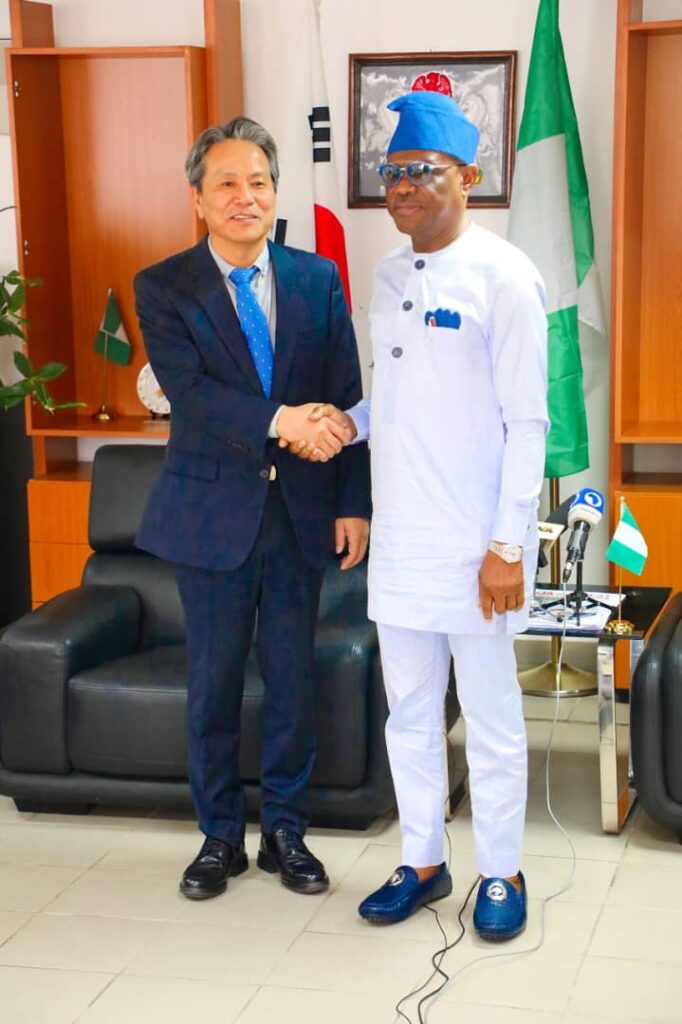
“It was my desire that we would have concluded with that partnership then, but unfortunately, that was not to be. I would also like to reintroduce that as the FCT Minister to see how we can also have that vocational school.”
Explaining further, the Minister stated that he would like to introduce a hands-on model to the vocational schools and skill acquisition centres in the FCT, in partnership with the Republic of Korea.
He said, “What interested me is that when I went to Samsung, what they do is that sometimes, they supply refrigerators and cars to the vocational schools for their practical. I thought that that would have been what we should have here. I think we have to see how we can come back to that issue because vocational education is very key to us.”
In his remarks, the Korean Ambassador to Nigeria informed the Minister about the collaborative efforts between South Korea, the Ministry of Agriculture and the Rural Electrification Agency, aimed at building a mini electricity grid in the FCT which is ongoing.
He also disclosed that South Korea plans to introduce a grant project to help young businessmen start new businesses. This is in addition to the Nigeria-Korea Model School in the FCT and other training programmes for teachers.
He revealed that his country had very good cooperation with the Universal Basic Education Commission and disclosed that his country expended about $15 million for the construction of the school.
“Also, in addition to that, we have launched a smart school project in six States in the geo-political zones, so one State in each geopolitical zone, to help innovate schools, especially in terms of ICT area and in terms of teachers’ education. From time to time, we send Nigerian teachers to Korea to have training, etcetera”, the Ambassador added.


